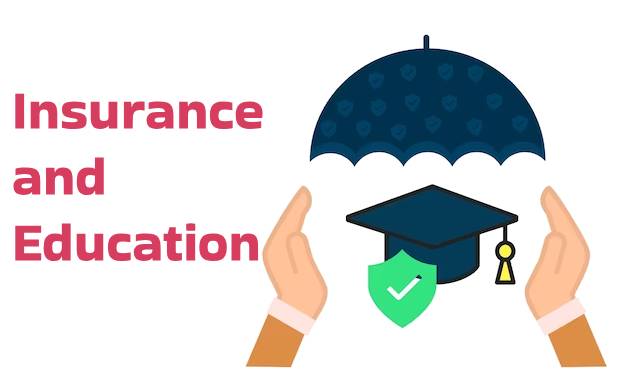In the dynamic landscape of India's economic growth, the correlation between insurance and education plays a pivotal role in shaping the financial well-being of individuals and families. As a content manager for an Indian life insurance company, it's essential to delve into the intersection of insurance and education, exploring how these two pillars can collectively contribute to enhancing financial literacy across the nation.
The Current State of Financial Literacy in India
Financial literacy remains a significant concern in India, with a large portion of the population lacking basic knowledge about managing finances and understanding the importance of insurance. According to various surveys, a substantial number of individuals are either underinsured or uninsured, exposing themselves to financial vulnerabilities in the face of unforeseen events.
The Role of Education in Fostering Financial Literacy
Education serves as the cornerstone for building a financially literate society. By integrating financial education into the academic curriculum, students can develop a fundamental understanding of concepts like budgeting, saving, and investing from an early age. Schools and colleges can play a pivotal role in shaping responsible financial behavior, preparing the younger generation to navigate the complexities of the financial world.
Insurance as a Tool for Financial Security
Insurance is not merely a risk mitigation tool; it is a crucial component of a comprehensive financial plan. Unfortunately, a lack of awareness and understanding often prevents individuals from recognizing the role insurance plays in securing their financial future. Through targeted educational initiatives, insurance companies can bridge this knowledge gap, emphasizing the need for adequate coverage to protect against life's uncertainties.
Empowering Individuals with Knowledge
The power of knowledge cannot be overstated when it comes to making informed financial decisions. Insurance companies can collaborate with educational institutions to organize workshops, seminars, and training programs that focus on demystifying insurance products and their benefits. These initiatives can empower individuals to make well-informed choices, ensuring that their insurance coverage aligns with their specific needs and circumstances.
Digital Transformation and Financial Education
In the age of digital transformation, leveraging technology becomes paramount in disseminating financial education. Mobile apps, online courses, and interactive tools can make financial literacy more accessible and engaging. Insurance companies can develop user-friendly applications that provide valuable information about insurance products, policy terms, and the claims process. By incorporating gamification and interactive elements, these platforms can make learning about insurance not only educational but also enjoyable.
Addressing Myths and Misconceptions
A pervasive obstacle to insurance adoption in India is the prevalence of myths and misconceptions. Many individuals harbor doubts about the necessity and affordability of insurance. Through targeted educational campaigns, insurance companies can debunk these myths, emphasizing the tangible benefits of having a robust insurance portfolio. Clear communication and transparency are key to dispelling misconceptions and building trust among potential policyholders.
Financial Literacy for Rural India
While urban areas may have better access to educational resources, rural India often faces challenges in terms of awareness and accessibility. Insurance companies can collaborate with grassroots organizations and local authorities to conduct outreach programs in rural communities. These initiatives can include informational sessions, pamphlets in regional languages, and community engagement activities to ensure that financial literacy reaches every corner of the country.
Government and Industry Collaboration
A holistic approach to promoting financial literacy requires collaboration between the government and the insurance industry. The government can incentivize insurance education programs through tax benefits or subsidies, encouraging individuals to actively participate in these initiatives. Insurance companies, in turn, can align their educational efforts with national priorities, contributing to the overall economic well-being of the country.
Case Studies in Successful Financial Literacy Campaigns
Highlighting successful case studies can inspire and motivate both individuals and organizations to actively participate in financial literacy initiatives. Showcase instances where targeted education campaigns led to increased insurance penetration and improved financial well-being in specific regions or demographic segments. These real-world examples can serve as beacons of success and provide valuable insights for designing effective educational strategies.
The Road Ahead: Sustaining Momentum in Financial Literacy
Promoting financial literacy is an ongoing process that requires continuous effort and adaptation. Insurance companies can establish long-term partnerships with educational institutions, community organizations, and government bodies to create a sustainable framework for financial education. Regular assessments and feedback mechanisms can help refine educational content, ensuring its relevance in an ever-evolving financial landscape.
Conclusion
The synergy between insurance and education has the potential to reshape the financial landscape of India. As a content manager for an Indian life insurance company, the responsibility lies in championing initiatives that not only raise awareness about the importance of insurance but also foster a culture of financial literacy.
By actively participating in educational campaigns, leveraging digital platforms, and collaborating with government agencies, the insurance industry can contribute significantly to building a financially resilient and empowered nation. Through these collective efforts, we can envision a future where every individual in India is not only insured but also equipped with the knowledge to make sound financial decisions, securing a prosperous and stable future for themselves and their families.
Disclaimer:
*Tax benefits are as per the Income Tax Act, 1961, and are subject to any amendments made thereto from time to time’
The article is meant to be general and informative in nature and should not be construed as solicitation material. Please read the related product brochures for exclusions, terms and conditions, warranties, etc. carefully before concluding a sale. Make responsible financial decisions. Consult with your financial advisor before making any decisions on insurance purchase.
